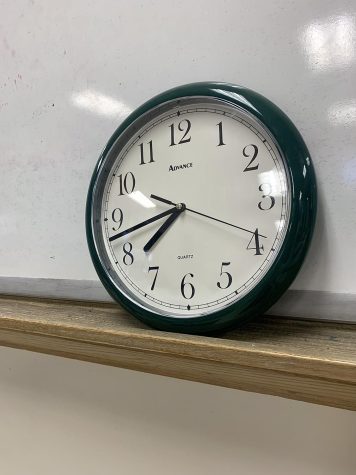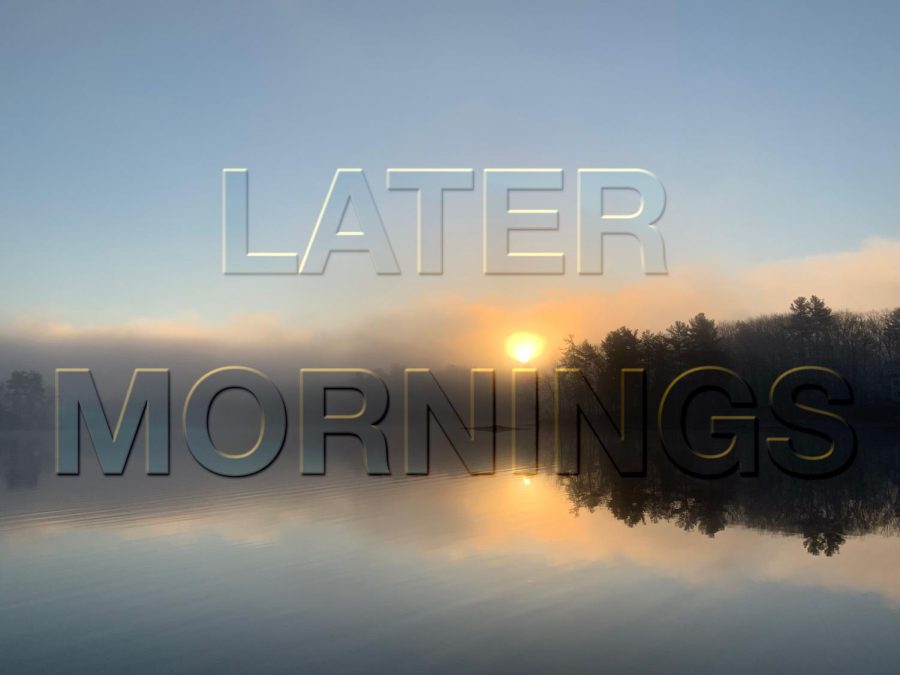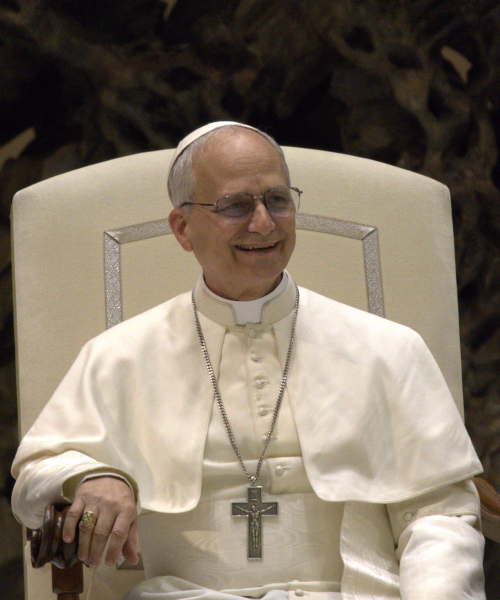Never changing the clocks again
Lost Lake in Groton Wood reflects the later sunrises that will occur with permanent daylight savings time
On Tuesday, March 15, the US Senate passed legislation that could make daylight savings time permanent aka, no clock changes. This proposal is being called the Sunshine Protection Act of 2021.
In order for this to become law, the House must vote to approve it and then President Joe Biden must sign the bill.
If the bill does pass, Daylight saving times would become permanent starting in November 2023.
The clock change to daylight savings was first executed by Congress during World War I to conserve fuel in the summer.

Daylight saving time has been praised for its loner evenings, especially for reducing seasonal depression (seasonal affective disorder) that is brought about by the lack of light during the winter months.
Daylight savings time also has been linked to a reduction in crime rates. Lighter evenings deter criminals and make most everyone feel a bit safer.
The lighter evenings also can reduce the use of artificial light which is a pro in terms of energy consumption and in terms of health.
There are also health risks. Changing the clocks can disrupt the body, and just one hour can cause sickness and lead to consequences such as the increased risk of heart attacks and strokes, along with the increased risk of car accidents.
However, there are positives to changing the clocks as well. People believe that clocks should continue to change because otherwise the mornings are consumed by darkness. Parents worry about young kids waiting for the bus with little to no light outside. In Massachusetts, for roughly 80 days in the cold winter months, the sun would rise between 8 and 8:30, when many children are already at school.
The white house has not made a comment on which way they are leaning on this bill, but when Biden was a senator in 1973 he did vote for permanent daylight-savings time, which may reveal how he will vote when the proposal reaches him.
Sophie Keys is a senior at Hamilton-Wenham Regional Highschool and a student journalist for the General Consensus. She’s taking a journalism course...







